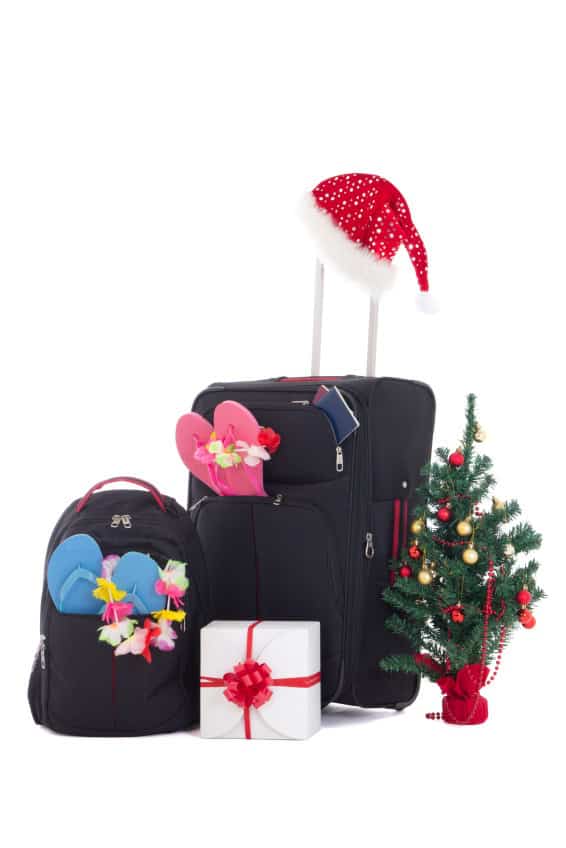I often hear non-native American English speakers using the term “going on holiday.”
Let’s take a look at this.
 “Holiday” is an interesting word and you’ll see it pop up all over the place at this time of the year. However, Americans never say they’re “going on holiday”. Nor do we say “going on holidays” or “going on a holiday”. And you won’t catch us referring to “summer holidays”.
“Holiday” is an interesting word and you’ll see it pop up all over the place at this time of the year. However, Americans never say they’re “going on holiday”. Nor do we say “going on holidays” or “going on a holiday”. And you won’t catch us referring to “summer holidays”.
However, you will hear “holiday” used this way in the UK.
If you’ve learned English in the British style you probably will have adopted it. In fact, Brits don’t even use the term “vacation”.
Origin of the word holiday
The word “holiday” originated from the Old English haligdæg, which means “holy day”, but clearly the nice long break many Europeans enjoy during July and August is usually associated with beaches, travel, etc., and not with religious events. So the word has both a literal and idiomatic career .
The US way of using the word holiday
In the United States, we say “going on vacation” or “taking a vacation”. This usually implies traveling somewhere, whether there’s a national holiday or not. Or, if we opt not to travel but rather chill out at home: “going on a staycation” or “taking some time off.” (It seems that New Yorkers in particular are either dying to get out of the city or utterly delighted to stay behind and enjoy ample parking spaces, less crowded restaurants, etc.)
When we use the term “the holiday” we are referring to a specific day of the year that’s coming up. It is usually recognized officially as a “day off”, such as the Fourth of July, Easter, Christmas, or Thanksgiving. Major national holidays only, not Halloween or Valentine’s Day. “We’re heading out to Montauk for the holiday” might imply a 2- to 3-day trip versus a full-fledged lengthy vacation, but you wouldn’t know for sure unless you asked.
Now…when we say “the holidays” (with an S) we are talking about Christmas and New Year’s and that entire period in between. “I’m going home for the holidays”. “The holidays are once again upon us.” If we are having that conversation in September or October we might be lumping in Thanksgiving while we’re at it. And if we’re Jewish, we would refer to that group of holidays in September and October (Rosh Hashana, Yom Kippur, etc.) also as “the holidays”. Or “the Jewish holidays”, just to be safe and not confuse anyone.
Here are some other ways Americans talk about going on vacation. There are some good idioms in here:
- “I’m heading out of town.”
- “I’m getting away for a few days.”
- “I’m getting outta here.”
- “We’ll be gone during Christmas break.”
- “We’re taking a road trip.” (A long drive)
- “I’m gonna go soak up some sun.”
What about happy holidays?
Here in the U.S., you’ll hear a lot of people saying “Happy Holidays” and not “Merry Christmas”. Given our country’s increasing religious and cultural diversity, many celebrate holidays other than Christmas at this time of the year, e.g. Hanukkah, Kwanzaa, and Winter Solstice.
It’s good etiquette, if you’re not sure about someone’s religious background, just to say “Happy Holidays”.
But if you know they’re Christian/Catholic for sure, feel free to say “Merry Christmas”. If they’re Jewish, “Happy Hanukkah”, and for Moslems “Ramadan Mubarak”.
But don’t say a “holiday tree”. It’s a Christmas tree, no two ways about it!!
Happy Holidays! Season’s Greetings!
Happy New Year!
Explore our 1:1 accent reduction trainings1:1 Training

